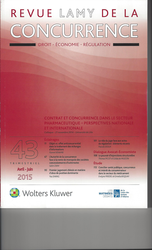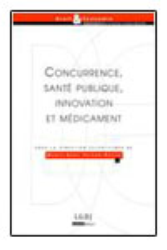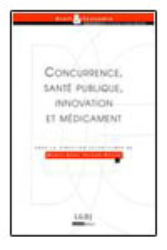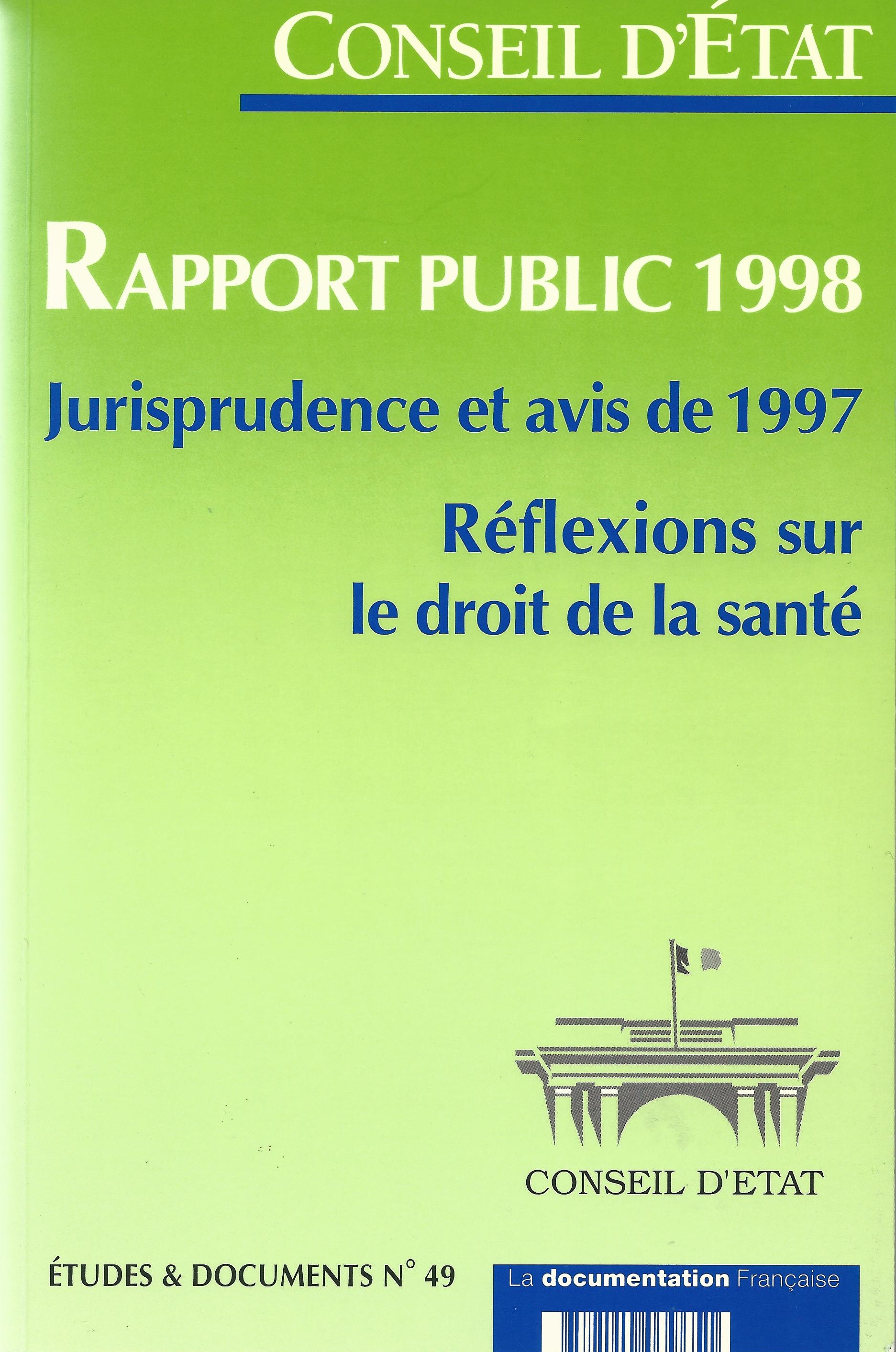
Updated: Sept. 25, 2021 (Initial publication: March 25, 2021)
Publications

 ► Référence complète : Frison-Roche, M.-A., Instituer l'insécurité juridique comme principe, outil de prévention des crises systémiques catastrophiques totales, document de travail, mars et septembre 2021.
► Référence complète : Frison-Roche, M.-A., Instituer l'insécurité juridique comme principe, outil de prévention des crises systémiques catastrophiques totales, document de travail, mars et septembre 2021.
____
► Ce document de travail fait suite à deux précédents documents de travail, réalisés pour le colloque qui s'est tenu à la Cour de cassation le 22 mars 2021.
Le premier avait été conçu et en partie réalisé longtemps avant sa tenue pour traiter le sujet selon les canons habituels attendus ;
Le second a été élaboré le veille de sa tenue sur 4 cas car la disparition de mes serveurs en raison d'un incendie, ayant également touché les copies de ceux-ci ne me permettait pas autre chose, les organisateurs m'ayant demandé de maintenir pourtant ma participation, ce dont je les remercie 📎
Le présent document de travail a été élaboré après la tenue du colloque afin que les organisateurs de ce colloque, au thème si aventureux, ne pensent pas qu'ils ne pouvaient pas compter sur moi.
Ce document de travail vise à dépasser ces avanies et à opérer la connexion du sujet pour lequel une contribution m'a été demandée (la crise économique) avec le sujet plus général qui me retient par ailleurs : la construction de la nouvelle branche qu'est le Droit de la Compliance, pourquoi le faire et comment le faire.
____
Introduction : Comme à tous, ce sujet de "L'insécurité juridique" me pose difficulté. Parce que, n'étant pas grand personnage solitaire affrontant l'inconnu, comme tous les autres je voudrais plutôt la sécurité que l'insécurité, et tous les mots qui ne commencent pas par une négation : je voudrais le connu plutôt l'inconnu, je voudrais être comprise qu'incomprise, et ce n'est plus par confort que par urgence morale je voudrais vivre dans un monde juste plutôt que dans un monde injuste. C'est d'ailleurs pour cette dernière raison que je vais affronter l'aventure de l'Insécurité juridique comme principe premier, et non pas comme exception au principe de la Sécurité juridique 📎
Cet ajout du "in" signale paradoxalement un retranchement : le "in" montre ce qui manque, comme le monde blessé qu'est le monde injuste. Me voilà invitée à traiter un sujet par avance abîmé, car l'insécurité juridique c'est déjà comme une agression : un monde amputé de sa sécurité, comme c'est désagréable.
C'est encore plus vrai pour "l'insécurité juridique". En effet, la notion fait face à la "sécurité juridique", cette sorte d'apport spécifique que le Droit offre au monde. La "sécurité juridique" est aujourd'hui comme un Totem, qui serait indissociable du Tabou de l'Insécurité. Dans le monde juridique épuisé dans lequel nous ne serions plus aptes qu'à proposer quelques notions procédurales, surtout pas de notions substantielles car immédiatement taxées d'être trop politiques 📎
La sécurité juridique, parce que les systèmes juridiques n'auraient plus que cela à offrir, revendiquant par ailleurs leur neutralité et se rejoignant donc sur cette constance, cette cohérence, et cette confiance produites par cette sécurité, est notre nouveau doudou.
A cela, l'on apporte nuances dans les modalités, en soulignant que les circonstances changeantes de la vie exigent un peu de flexibilité, que le pragmatisme et des situations concrètes et particulières qui sans cesse varient impliquent de prévoir dès aujourd'hui que demain le contexte aura changé : il faut organiser de la prévisibilité dans le changement. De cela, le Droit souple s'en charge, les lignes directrices étant les nouvelles voies romaines qui nous montreront le chemin. Sécurité et flexibilité, dans un pragmatisme qui voit dans tout principe substantiel un signe de rigidité, voilà notre nouveau mantra.
L'insécurité juridique est ainsi notre Tabou, dont les admissions justifiées seraient autant d'hommages rendus au Totem de la sécurité juridique, Totem et Tabou se renforçant toujours. Il y aurait donc imperfection du système juridique si l'on haussait l'insécurité au rang de véritable principe. C'est pourquoi lorsqu'on fait l'effort de parler d'insécurité juridique, on semble ne le faire que sur le mode de l'exception : l'insécurité juridique, cela serait ce qu'il est admissible de supporter comme exception légitime au principe de la sécurité juridique 📎
L'on aura donc tendance à traiter de l'insécurité juridique comme une sorte de principe supportable lorsque quelque chose justifie qu'on porte atteinte au véritable principe premier qu'est la Sécurité juridique. C'est ailleurs ainsi le plus souvent qu'on l'aborde . Ce n'est donc pas le traiter comme un véritable principe, juste comme une exception supportable.
Voilà pourquoi l'on m'a demandé d'examiner si l'insécurité juridique était supportable, admissible, lorsqu'il y a crise économique. Sans doute parce que lorsqu'il y a crise économique, alors tant pis les principes doivent un peu baisser pavillon et l'on fait avec les moyens du bord en admettant des exceptions, bien qu'avec beaucoup de réticences et de regrets 📎
L'insécurité juridique n'aurait donc qu'un temps, parce que par nature la crise elle-même n'a qu'un temps. La fin de la crise, la fin des problèmes et d'une situation anormale feraient disparaître le principe d'insécurité juridique, lequel serait donc un principe pathologique.
Mais ce n'est pas parce que cette description semble partagée par beaucoup que ses prémisses soient exacts. En effet, la "crise" est-elle si exceptionnelle que ce qui justifie que l'insécurité juridique, qui permet d'aider à sa résolution, le soit aussi ? Si l'on constate plutôt que la crise est non seulement notre "ordinaire", et qu'en plus notre "ordinaire catastrophique" est "prévisible", voire virtuellement déjà là, et qu'en plus dans le futur, ce qui risque d'arriver est une crise catastrophique totale qui pourrait bien être définitive dans ses effets (ce qui enlève à la crise sa nature temporaire et le retour au "vrai principe" également), alors le principe exceptionnel, cantonné dans la crise, doit sortir de l'hypothèse de celle-ci pour venir pleinement dans le Droit présent afin d'empêcher que se réalise cet ordinaire catastrophique.
Oui, regardons vers le futur : ne sont-ce pas de monumentales crises qui sont devant nous ? Et l'enjeu n'est-il pas d'adopter des principes premiers pour qu'elles n'adviennent pas ? S'il en est ainsi, alors l'absence de changement, la constance et le prévisible, c'est-à-dire le principe même de la Sécurité juridique, si choyé, n'est-ce pas ce qui fait obstacle à la prévention de l'advenance des crises économiques qui nous menacent ? Certes c'est sans doute une crise sanitaire et une crise écologique et climatique qui nous sont devant nous, mais de la même façon la crise économique de 2020 n'est elle-même qu'un accessoire de la crise sanitaire mondiale, prémisses de ce qui pourrait arriver.
Si nous sommes dans cette situation mondiale alors, ce n'est pas une conception procédurale des principes qu'il faut retenir, mais une conception politique. De la même façon, dans cette perspective ce n'est pas en terme d'exception, de "principe exceptionnel" mais bien en terme de principe premier qu'il faut penser l'Insécurité juridique, c'est-à-dire en terme d'éveil et d'aventure, car demain pourrait n'être pas du tout comme aujourd'hui. Seul le principe inverse de l' "Insécurité juridique" pourrait alors exprimer la volonté d'y répondre (II).
_____
► Lire ci-dessous les développements du document de travail ⤵
L'incendie d'OVH peut simplement être pris comme un exemple de crise. V. infra ⤵
Ce qui occupe la seconde partie de la présente étude.
Ainsi le Droit de la Compliance a longtemps été présenté comme une simple procédure d'effectivité des règles, ce qui rassure, plutôt que ce qui est sa définition substantielle, à savoir des "Buts Monumentaux", notamment sociaux et climatiques, qui lui donne toute son ampleur et révèle sa nature profondément politique. V. Frison-Roche, M.-A. ✏️Notes pour une synthèse opérée sur le vif des travaux du colloque : "Les Buts Monumentaux du Droit de la Compliance : radioscopie d'une notion" la notion de Buts Monumentaux du Droit de la Compliance, 2021 ; et voir plus généralement Frison-Roche, M.-A. (dir), 📕 Les Buts Monumentaux de la Compliance, 2022.
Contre cela, Frison-Roche, M.-A., Non, je n'aime pas la réglementation, septembre 2021.
Il en est de même du principe de proportionnalité. Mais là aussi il serait adéquat de penser les choses différemment. Voir une démonstration dans ce sens, Frison-Roche, M.-A., Définition de la proportionnalité et Définition du Droit de la Compliance, 2021.
Pour une description du choc que la loi déclarant "l'Etat d'urgence sanitaire" fit sur la doctrine juridique, Gelbrat, A. et , Etat d'urgence sanitaire : la doctrine dans tous ses états, 2020.
Ce sont souvent dans ces termes que la doctrine s'exprime. Par exemple 📝Kamgaing, P.-C., Crise sanitaire et procédures judiciaires : étude de droit processuel, 2020, évoquant le fait que le droit processuel est "bafoué".
Oct. 22, 2020
Interviews

Full reference: Frison-Roche, M.-A., "Health Data Hub est un coup de maître du Conseil d'Etat", interview realized by Olivia Dufour for Actu-juridiques, Lextenso, 22nd of October 2020
Read the news of 19th of October 2020 of the Newsletter MAFR - Law, Compliance, Regulation on which relies this interview: Conditions for the legality of a platform managed by an American company hosting European health data: French Conseil d'Etat decision
To go further, on the question of Compliance Law concerning Health Data Protection, read the news of 25th of August 2020: The always in expansion "Right to be Forgotten": a legitimate Oxymore in Compliance Law built on Information. Example of Cancer Survivors Protection
Oct. 19, 2020
Newsletter MAFR - Law, Compliance, Regulation

Full reference: Frison-Roche, M.-A., Conditions for the legality of a platform managed by an American company hosting European health data: French Conseil d'Etat decision, Newsletter MAFR - Law, Compliance, Regulation, 19th of October 2020
Read by freely subscribing the other news of the Newsletter MAFR - Law, Compliance, Regulation
___
News Summary: In its ordinance of 13th of October 2020, Conseil national du logiciel libre (called Health Data Hub), the Conseil d'Etat (French Administrative Supreme Court) has determined the legal rules governing the possibility to give the management of sensitive data on a platform to a non-europeans firm, through the specific case of the decree and of the contract by which the management of the platform centralizing health data to fight against Covid-19 has been given to the Irish subsidiary of an American firm, Microsoft.
The Conseil d'Etat used firstly CJEU case law, especially the decision of 16th of July 2020, called Schrems 2, in the light of which it was interpreted and French Law and the contract linking GIP and
The Conseil d'Etat concluded that it was not possible to transfer this data to United-Sates, that the contract could be only interpreted like this and that decree and contract's modifications secured this. But it observed that the risk of obtention by American public authorities was remaining.
Because public order requires the maintenance of this platform and that it does not exist for the moment other technical solution, the Conseil d'Etat maintained the principle of its management by Microsoft, until a European operator is found. During this, the control by the CNIL (French Data Regulator), whose the observations has been taken into consideration, will be operated.
We can retain three lessons from this great decision:
- There is a perfect continuum between Ex Ante and Ex Post, because by a referred, the Conseil d'Etat succeed in obtaining an update of the decree, a modification of the contractual clauses by Microsoft and of the words of the Minister in order to, as soon as possible, the platform is managed by an European operator. Thus, because it is Compliance Law, the relevant time of the judge is the future.
- The Conseil d'Etat put the protection of people at the heart of its reasoning, what is compliant to the definition of Compliance Law. It succeeded to solve the dilemma: either protecting people thanks to the person to fight against the virus, or protecting people by preventing the centralization of data and their captation by American public authorities. Through a "political" decision, that is an action for the future, the Conseil found a provisional solution to protect people against the disease and against the dispossession of their data, requiring that an European solution is found.
- The Conseil d'Etat emphasized the Court of Justice of The European Union as the alpha and omega of Compliance Law. By interpreting the contract between a GIP (Public interest Group) and an Irish subsidy of an American group only with regards to the case law of the Court of Justice of European Union, the Conseil d'Etat shows that sovereign Europe of Data can be built. And that courts are at the heart of this.
___________
Read the interview given on this Ordinance Health Data Hub
To go further about the question of Compliance Law concerning health data protection, read the news of 25th of August 2020: The always in expansion "Right to be Forgotten": a legitimate Oxymore in Compliance Law built on Information. Example of Cancer Survivors Protection
Aug. 25, 2020
Newsletter MAFR - Law, Compliance, Regulation

Full reference: Frison-Roche, M.-A., The always in expansion "Right to be Forgotten": a legitimate Oxymore in Compliance Law built on Information. Example of Cancer Survivors Protection, Newsletter MAFR - Law, Compliance, Regulation, 25th of August 2020
Read by freely subscribing other news of the Newsletter MAFR - Law, Compliance, Regulation
Summary of the news
The "right to be forgotten" is an invention of the Court of Justice of the European Union during the case Google Spain in 2014. It implies that digital firms block the access to personal data of someone who asks it. This "right to be forgotten", which permits to impose secret to third parties has largely been generalized by GDPR in 2016. This new fundamental subjective right is a very political and European right. United-States which, on the contrary of Europe, did not experience nazism, links the "right to be forgotten" to the protection of consumer, conception which especially leads California Consumer Privacy Act adopted in 2018 to link this right to a situation of absence of necessity of this data for the firm which obtained it.
In Europe, this willingness to protect directly the person increases the scope of such a subjective right. Thus, in France and in Luxembourg, since 2020, a cancer survivor can thus ask that such an information is not accessible among his or her health data, especially for insurance companies which use them in their risk calculus to set premium amount. Netherlands will do the same in 2021 to fight against discrimination between banks' and insurances' clients.
The "monumental goal" is therefore not so much here the protection of individual freedoms as the protection of the vulnerable person, which is bye the way the keystone of a Compliance Law, concealing sometimes prohibition to circulate information (as here) and sometimes obligation to circulate information (in other cases, where the alert must be given) depending on whether vulnerable people are protected either by one or by the other.
July 25, 2020
Thesaurus : Doctrine
Full reference: Thouret, T., Le pharmacien, un "opérateur crucial" pour prévenir une crise des opiacés en France, Actu-juridiques, Lextenso, 2020
Lire l'article (in French)
Sept. 22, 2015
Conferences
April 28, 2015
Publications

Référence complète : Frison-Roche, M.-A., La distribution en gros du médicament entre concurrence et régulation, in Contrat et concurrence dans le secteur pharmaceutique - perspectives nationales et internationale, Revue Lamy de la Concurrence (RLC), n°2781, avril-juin 2015, p.193-197.
L'article s'appuie sur un working paper, plus développé, actualisé et dotée de nombreuses références technique.
Sept. 25, 2014
Blog
 J'écoutais la radio dans le taxi en sortant de mon cours.
J'écoutais la radio dans le taxi en sortant de mon cours.
Les journalistes parlent sur toutes les ondes ce qui serait un "arrêt" rendu par la Cour de cassation. Celui-ci aurait admis l'efficacité en France de la procréation médicalement assistée (P.M.A.), lorsque l'une des femmes d'un couple lesbien l'a réalisée à l'étranger, sa conjointe voulant procéder par la suite à l'adoption de l'enfant.
Les journalistes affirment que l'arrêt est justifié par "l'intérêt supérieur de l'enfant" et qu'il "tire les conséquences de la loi du 17 mai 2013". Les journalistes expliquent que l'arrêt est conforme au Code civil et aux engagements internationaux de la France.
Cela suffit à écarter la prohibition du droit français de recourir à la P.M.A. par convenance, sans constat d'une stérilité médicalement constatée.
Rentrée à mon bureau, j'écoute les médias sur lesquels l'information repasse en boucle et je vais chercher le document.
Il ne s'agit en rien d'un arrêt, mais de deux avis, que les journalistes n'ont pas lus. En revanche, ils ont lu le "communiqué" que la Cour a diffusé dans toutes les salles de rédaction, qui exprime la philosophie de ce qui est présenté comme une décision. C'est de ce communiqué qu'est tirée cette sorte d' "auto-commentaire" que la Cour fait de ses avis, pourtant si laconiques, selon lequel sa position est conforme au droit interne et international de l'adoption.
En revanche, les deux avis, qui se réduisent à une phrase, ne contiennent aucune discussion et ne développent aucun motivation. Dans l'unique phrase, il est posé : il suffit désormais que le droit de l'adoption soit respecté et que l'intérêt de l'enfant ne soit pas contrarié pour que le non-respect du droit français par la pratique des adultes ne fasse pas obstacle à l'établissement de la filiation de l'enfant.
Par un simple avis, à peine motivé, la Cour anéantit et la loi et sa propre jurisprudence.
Sous l'Ancien Régime, l'on connaissait les arrêts de règlement. Nous connaissons désormais les "avis de règlements".
Lire les avis de la Cour de cassation du 22 septembre 2014
Lire les conclusions de l'avocat général.
Sept. 16, 2010
Publications

Références complètes : FRISON-ROCHE, Marie-Anne, Politique publique de la maîtrise de santé, protection de la santé publique, droit général de la concurrence et régulation sectorielle, in FRISON-ROCHE, Marie-Anne (dir.), Concurrence, santé publique, innovation et médicament, coll. "Droit et Économie", LGDJ - Lextenso édition, Paris, 2010, p.1-14.
Sept. 15, 2010
Publications

Référence complète : FRISON-ROCHE, Marie-Anne, L'office du juge en matière de médicaments, in FRISON-ROCHE, Marie-Anne (Dir.), Concurrence, santé publique, innovation et médicament, coll. Droit et Economie, LGDJ, Paris, 2010, p.423-432.
Lire la présentation générale de l'ouvrage dans lequel l'article a été publié.
Oct. 15, 2009
Conferences
Référence complète : FRISON-ROCHE, Marie-Anne, Droit de la concurrence et médicament générique, in Le médicament générique, colloque de l'Association Française du Droit de la Santé, 15 octobre 2009.
Oct. 10, 1998
Thesaurus : Doctrine

